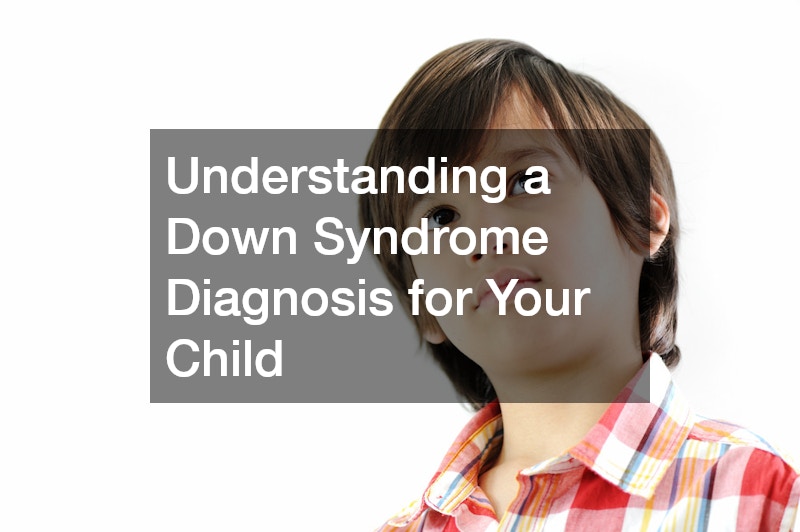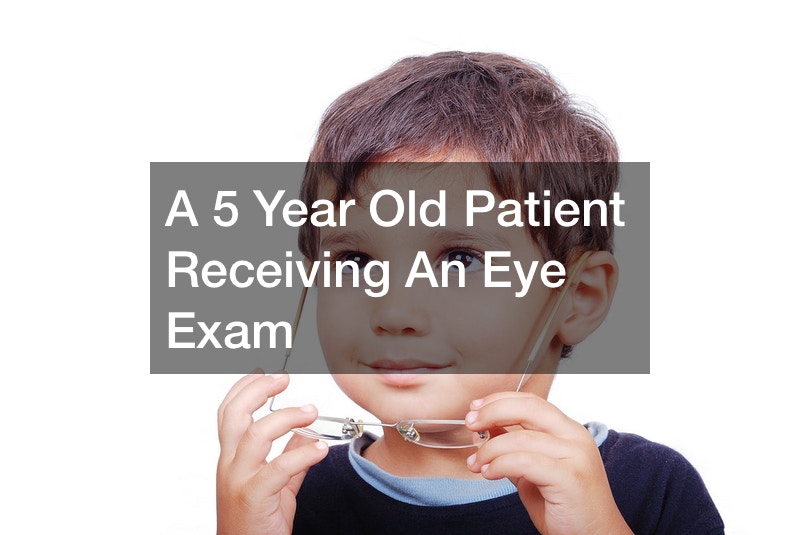
This article provides comprehensive information and guidance for parents who have received a Down Syndrome diagnosis for their child, addressing common concerns and questions. Being informed about the condition can help ease the process of adapting to new challenges and celebrating the unique journey of raising a child with Down Syndrome. This article seeks to empower parents with knowledge about what Down Syndrome is, how it is diagnosed, the health implications, how to support a child’s development, and where to find valuable resources and support.
What is Down Syndrome?
Definition and Overview
Down Syndrome is a genetic disorder caused by an extra chromosome 21, leading to developmental and physical differences. It is the most common chromosomal condition diagnosed in the United States, affecting individuals across all racial and economic groups.
Children with Down Syndrome often exhibit distinct facial features and may have developmental delays. However, the degree of these characteristics can vary vastly from person to person. Down Syndrome is a lifelong condition, but early intervention and supportive care can significantly enhance quality of life.
Genetic Causes
The genetic basis of Down Syndrome is the presence of an extra copy of chromosome 21, also called trisomy 21. This genetic variation is typically random and is not inherited, although in less than 1% of cases, a genetic component can increase the likelihood of Down Syndrome in future offspring. Advanced maternal age is a known risk factor, as the likelihood of nondisjunction events increases with age. Understanding the genetic causes of Down Syndrome can help parents gain insights into the condition and manage expectations about inheritance and recurrence. Genetic counseling is often recommended to discuss potential risks for future pregnancies.
Types of Down Syndrome
There are three types of Down Syndrome: Trisomy 21, Mosaicism, and Translocation. Trisomy 21 accounts for about 95% of cases and occurs when three separate chromosomes are found at the 21st chromosomal position in each cell. Mosaicism, found in approximately 1% of individuals, involves a mixture of cells, some with the usual 46 chromosomes and others with 47, including an extra chromosome 21. Translocation, affecting about 4% of people with Down Syndrome, occurs when part of chromosome 21 becomes attached to another chromosome. Recognizing these types helps in understanding the nuances of diagnosis and symptoms specific to each type.
Prevalence and Statistics
Globally, Down Syndrome affects approximately 1 in every 700 babies born each year. It is the most common chromosomal condition identified, with about 6,000 cases annually in the United States. Statistics indicate that the incidence of Down Syndrome increases with maternal age, especially for mothers over 35 years old. Yet, due to higher birth rates among younger women, the majority of babies with Down Syndrome are born to mothers under 35. Knowing these facts offers perspective and can help parents feel less isolated, understanding they are part of a larger community of families.
Common Misconceptions
There are numerous misconceptions about Down Syndrome, often fueled by a lack of understanding and awareness. Some people mistakenly believe that individuals with Down Syndrome have limited potential and can’t lead fulfilling lives. However, many with the condition successfully pursue education, work opportunities, and independent living. Another myth is that Down Syndrome is a rare condition, which, as clarified, is not true given the statistics. Dispelling these myths is crucial to fostering an inclusive environment and advocacy for individuals with Down Syndrome.
How is Down Syndrome Diagnosed?

Prenatal Screening
Prenatal screening involves testing the likelihood that a fetus has Down Syndrome based on risk factors and biochemical markers. Common non-invasive tests include the maternal serum screening and ultrasound scans conducted during the first and second trimesters. These tests do not confirm the presence of the condition but rather assess the probability and indicate if further diagnostic testing is needed. While beneficial in early detection, prenatal screenings can sometimes lead to uncertainty and anxiety for parents. The screening results can be used to guide decision-making regarding further diagnostic options.
Diagnostic Tests
Diagnostic tests such as amniocentesis and chorionic villus sampling provide more definitive information regarding a Down Syndrome diagnosis. Amniocentesis, performed around 15-20 weeks of gestation, involves sampling amniotic fluid to check fetal genetics. Chorionic villus sampling, done between 10-13 weeks, examines a small piece of placenta tissue for chromosomal anomalies. Both tests carry a small risk of miscarriage, so parents should discuss the potential benefits and risks with healthcare providers. Confirming Down Syndrome through these tests offers clarity for parents to prepare psychologically and plan for their child’s future needs.
Recognizing Physical Features
Common physical features of Down Syndrome can be detected postnatally, providing clues toward the diagnosis. These features may include flattened facial profiles, almond-shaped eyes, small stature, and a single deep crease on the palms. While not all children exhibit these characteristics to the same degree, they serve as initial indicators for further genetic evaluation. A pediatrician specializing in genetic disorders can provide guidance in identifying and understanding these features. Recognizing these signs is crucial for timely intervention and support.
Postnatal Diagnosis and Confirmation
A postnatal diagnosis often involves a physical examination followed by genetic testing. A blood sample from the infant is analyzed to confirm the presence of an extra chromosome 21. Karyotyping is a common genetic test to visually depict chromosome pairs and their configuration, helping confirm the diagnosis. The confirmation of Down Syndrome allows healthcare providers to establish comprehensive care plans and connect families with early intervention resources. Early and accurate diagnosis is vital for addressing health concerns and supporting developmental progress.
Consulting with Genetic Counselors
Consulting with a genetic counselor can provide families with invaluable insights and guidance regarding a Down Syndrome diagnosis. Genetic counselors are trained professionals who help families understand the implications of genetic disorders and the potential impacts on family planning. They offer support in processing emotional responses and in discussing the range of medical, developmental, and educational services. Additionally, counselors assist in navigating decision-making about further testing and potential interventions. Engaging with a genetic counselor ensures families receive personalized information and support tailored to their unique circumstances.
What are the Health Implications?
Associated Health Conditions
Children with Down Syndrome may experience a range of health issues that require comprehensive management and monitoring. Common associated conditions include congenital heart defects, respiratory and hearing problems, and a higher susceptibility to infections. Thyroid abnormalities, gastrointestinal complications, and an increased risk of leukemia are also observed. Regular medical check-ups and specialist consultations are essential to address and manage these potential health concerns effectively. Early detection and treatment can significantly improve health outcomes.
Managing Medical Care
Effective management of medical care for children with Down Syndrome involves collaboration between parents, healthcare providers, and specialists. Coordinated care models help integrate the services of pediatricians, cardiologists, audiologists, and other professionals tailored to a child’s unique needs. Establishing a patient-centered medical home can facilitate ongoing monitoring, prevention, and management of health complications. Adhering to recommended health screenings and vaccinations ensures timely interventions and promotes overall well-being. A proactive approach in managing medical care contributes to enhanced life quality and health longevity.
Nutritional Needs and Lifestyle
Proper nutrition and an active lifestyle are fundamental components in supporting the health of children with Down Syndrome. A well-balanced diet rich in vitamins and minerals supports cognitive function and helps prevent obesity-related health issues. Regular physical activity promotes cardiovascular health and improves muscle tone, which is particularly beneficial given the potential for hypotonia in children with Down Syndrome. Tailored dietary plans developed with nutritionists can address specific health requirements and preferences. Cultivating a healthy lifestyle encourages positive physical, emotional, and cognitive development.
Impact on Development
The developmental progress of children with Down Syndrome varies widely, requiring personalized and adaptive intervention strategies. Delays may occur in speech, motor skills, and cognitive development, but with appropriate therapies, significant progress is possible. Early intervention programs play a crucial role in enhancing developmental milestones and fostering capabilities. Families, educators, and therapists collaboratively set realistic goals, utilizing tailored strategies to nurture each child’s growth. Understanding and supporting a child’s developmental needs fosters an environment where they can thrive and achieve their potential.
Long-term Health Monitoring
Long-term health monitoring is pivotal in managing the evolving needs of individuals with Down Syndrome. Regular assessments, including hearing and vision tests, dental care, and screening for thyroid function and other related health conditions, are essential. A comprehensive health management plan emphasizes preventative care and routine monitoring to address emerging issues promptly. Continuous care and support are instrumental in promoting an active, fulfilling life throughout different life stages. Engaging healthcare providers collaboratively ensures sustained health and well-being.
How Can We Support Our Child’s Development?
Early Intervention Programs
Early intervention programs are vital in supporting the development of children with Down Syndrome during formative years. These programs focus on enhancing cognitive, physical, and social skills through structured and individualized activities. Collaborating with therapists and educators specializing in developmental delays allows for customized approaches that address specific needs and maximize potential. Family involvement in these programs is crucial, reinforcing learned skills at home. Early intervention positively impacts long-term developmental outcomes and fosters a supportive foundation for future growth.
Speech and Language Therapy
Speech and language therapy is essential in facilitating effective communication in children with Down Syndrome. Therapists work on articulation, language comprehension, and expressive skills, utilizing play-based and interactive techniques. Incorporating visual aids and alternative communication methods enhances understanding and engagement. Early and consistent speech therapy interventions can significantly improve communication abilities, boosting confidence and independence. Parents’ active involvement in reinforcing therapy activities at home strengthens language acquisition and practical application.
Physical and Occupational Therapy
Physical and occupational therapy play a critical role in promoting motor skills and functional independence in children with Down Syndrome. These therapies focus on improving coordination, balance, and strength, allowing children to navigate daily activities more effectively. Occupational therapists often address challenges related to sensory processing, fine motor skills, and self-care tasks. Incorporating therapy into a child’s routine optimizes skill development and encourages autonomy. Collaborating with experienced therapists ensures children receive tailored support catering to their individualized developmental trajectories.
Educational Strategies
Implementing inclusive and adaptive educational strategies enhances learning experiences for children with Down Syndrome. Individualized Education Plans (IEPs) serve as essential tools in creating custom educational pathways addressing specific strengths, challenges, and goals. Employing multisensory teaching techniques accommodates diverse learning styles, fostering engagement and understanding. Collaboration between educators, specialists, and parents is key in developing effective educational strategies and monitoring progress. Providing a supportive and flexible learning environment cultivates a love for learning and academic growth.
Building Social Skills and Independence
Building social skills and promoting independence are integral aspects of development for children with Down Syndrome. Structured socialization opportunities, such as group activities and play dates, encourage interaction and the practice of social norms. Teaching life skills and providing opportunities for decision-making fosters self-confidence and autonomy. Encouragement and positive reinforcement from families and caregivers play a crucial role in nurturing these traits. Strengthening social interactions and independence prepares children for diverse life experiences and transitions into adulthood.
Where Can We Find Support and Resources?
Connecting with Support Groups
Support groups offer a crucial lifeline for families navigating the journey of raising a child with Down Syndrome. Connecting with other families provides a shared sense of community, emotional support, and practical advice. These groups often facilitate educational workshops, family events, and social activities, fostering inclusion and understanding. By sharing experiences and resources, families can find reassurance, learn from each other, and advocate more effectively. Being part of a supportive network alleviates feelings of isolation and empowers families on their unique journey.
Finding Reliable Information Online
Accessing reliable information online is vital for staying informed about advancements and opportunities related to Down Syndrome. Trusted websites, such as those run by medical institutions, advocacy organizations, and governmental health agencies, offer evidence-based resources. Engaging with webinars, expert blogs, and virtual communities helps families remain accustomed to the latest research and best practices. It is important to critically evaluate online sources, ensuring information aligns with validated medical knowledge and expert opinions. Reliable online information enriches knowledge, guiding informed decisions and effective advocacy.
Community and Social Services
Community and social services provide invaluable assistance to families with children with Down Syndrome, offering resources for child care, education, and rehabilitation. Local and regional agencies often provide personalized services such as respite care, therapeutic programs, and educational support. Engaging these services can reduce financial burdens and improve access to essential care and developmental opportunities. Navigating available services may involve consulting with healthcare providers, social workers, and educational specialists. Community and social services form a supportive infrastructure, enhancing family well-being and child development.
Advocacy and Legal Resources
Advocacy and legal resources empower families to ensure fair and equitable treatment for individuals with Down Syndrome in various settings. These resources address issues such as educational rights, healthcare access, and workplace inclusivity. Organizations focused on disability rights offer information on navigating the legal landscape, advocating for policy changes, and securing necessary accommodations. Collaborating with advocacy groups strengthens awareness initiatives, promoting positive societal change and empowerment for individuals with Down Syndrome. Legal expertise and support are vital in safeguarding the rights and dignity of every individual affected by the condition.
Staying Informed About New Research
Staying informed about new research is essential for families seeking the best possible care and opportunities for their child with Down Syndrome. Advances in genetic research, educational methodologies, and therapeutic interventions continually emerge, influencing treatment strategies and outcomes. Engaging with specialists, attending conferences, and participating in research studies help families keep pace with evolving knowledge. Cultivating partnerships with academic institutions and advocacy organizations fosters a proactive approach to incorporating evidence-based solutions. Remaining informed about new research supports effective advocacy and enables families to adapt to changing needs and opportunities.
Navigating a Down Syndrome diagnosis for your child can be challenging, but with the right information and support, parents can provide a nurturing and fulfilling life for their child. Understanding the genetic basis, recognizing health implications, and implementing effective developmental strategies contribute to a child’s overall well-being. Engaging with supportive communities and reliable resources empowers families to make informed decisions, advocating for their child’s rights and opportunities. Embracing the journey with knowledge, empathy, and resilience ensures an enriching life for both the child and their family.



